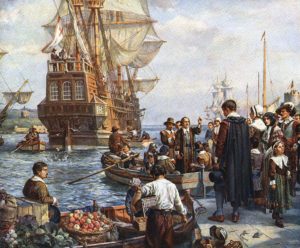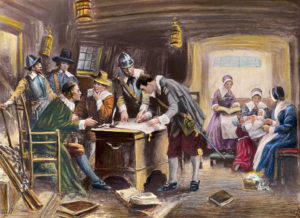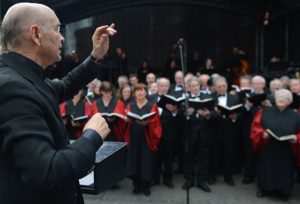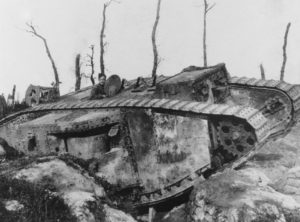-
January
-
February
- This Week in History: February 6-12 – Lesson
- This Week in History: February 6-12 – Quiz
- This Week in History: February 13-19 – Lesson
- This Week in History: February 13-19 – Quiz
- This Week in History: February 20-26 – Lesson
- This Week in History: February 20-26 – Quiz
- This Week in History: February 27-March 5 – Lesson
- This Week in History: February 27-March 5 – Quiz
-
March
- This Week in History: March 6-12 – Lesson
- This Week in History: March 6-12 – Quiz
- This Week in History: March 13-19 – Lesson
- This Week in History: March 13-19 – Quiz
- This Week in History: March 20-26 – Lesson
- This Week in History: March 20-26 – Quiz
- This Week in History: March 27-April 2 – Lesson
- This Week in History: March 27-April 2 – Quiz
-
April
- This Week in History April 3-9 – Lesson
- This Week in History April 3-9 – Quiz
- This Week in History: April 10-16 – Lesson
- This Week in History: April 10-16 – Quiz
- This Week in History: April 17-23 – Lesson
- This Week in History: April 17-23 – Quiz
- This Week in History: April 24-30 – Lesson
- This Week in History: April 24-30 – Quiz
-
May
- This Week in History: May 1 – 7 – Lesson
- This Week in History: May 1 – 7 – Quiz
- This Week in History: May 8 – 14 – Lesson
- This Week in History: May 8 – 14 – Quiz
- This Week in History: May 15 – 21 – Lesson
- This Week in History: May 15 – 21 – Quiz
- This Week in History: May 22-28 – Lesson
- This Week in History: May 22-28 – Quiz
- This Week in History: May 29-June 4 – Lesson
- This Week in History: May 29-June 4 – Quiz
-
June
- This Week in History: June 5 – 11 – Lesson
- This Week in History: June 5 – 11 – Quiz
- This Week in History: June 12-18 – Lesson
- This Week in History: June 12-18 – Quiz
- This Week in History: June 19-25 – Lesson
- This Week in History: June 19-25 – Quiz
- This Week in History: June 26 – July 2 – Lesson
- This Week in History: June 26 – July 2 – Quiz
-
July
- This Week in History: July 3 – 9 – Lesson
- This Week in History: July 3 – 9 – Quiz
- This Week in History: July 10 – 16 – Lesson
- This Week in History: July 10 – 16 – Quiz
- This Week in History July 17 – 23 – Lesson
- This Week in History July 17 – 23 – Quiz
- This Week in History – July 24-30 – Lesson
- This Week in History – July 24-30 – Quiz
- This Week in History: July 31 – August 6 – Lesson
- This Week in History: July 31 – August 6 – Quiz
-
August
- This Week in History: August 7-13 – Lesson
- This Week in History: August 7-13 – Quiz
- This Week in History: August 14 – 20 – Lesson
- This Week in History: August 14 – 20 – Quiz
- This Week in History: August 21 – 27 – Lesson
- This Week in History: August 21 – 27 – Quiz
- This Week in History: August 28 – September 3 – Lesson
- This Week in History: August 28 – September 3 – Quiz
-
September
- This Week in History: September 4 – 10 – Lesson
- This Week in History: September 4 – 10 – Quiz
- This Week in History: September 11 -17 – Lesson
- This Week in History: September 11 -17 – Quiz
- This Week in History: September 18 – 24 – Lesson
- This Week in History: September 18 – 24 – Quiz
- This Week in History: September 25 – October 1 – Lesson
- This Week in History: September 25 – October 1 – Quiz
-
October
- This Week in History: October 2-8 – Lesson
- This Week in History: October 2-8 – Quiz
- This Week in History: October 9 –15 – Lesson
- This Week in History: October 9 –15 – Quiz
- This Week in History: October 16–22 – Lesson
- This Week in History: October 16–22 – Quiz
- This Week in History: October 23–29 – Lesson
- This Week in History: October 23 –29 – Quiz
- This Week in History: October 30 – November 5 – Lesson
- This Week in History: October 30 – November 5 – Quiz
-
November
- This Week in History: November 6 – 12 – Lesson
- This Week in History: November 6 – 12 – Quiz
- This Week in History: November 13 – 19 – Lesson
- This Week in History: November 13 – 19 – Quiz
- This Week in History: November 20 – 26 – Lesson
- This Week in History: November 20 – 26 – Quiz
- This Week in History: November 27- December 3 – Lesson
- This Week in History: November 27- December 3 – Quiz
-
December
This Week in History: September 11 -17 – Lesson

The Pilgrim Fathers boarding the ‘Mayflower’ for their voyage to America. After painting by Bernard Gribble. (Photo by: Photo12/Universal Images Group via Getty Images)
“If history repeats itself, and the unexpected always happens, how incapable must Man be of learning from experience.” George Bernard Shaw
September 16, 1620: The Mayflower Departs for the New World
The Pilgrims, as we call them today, began the long two-month journey from England to the New World in hopes of building a better, and freer, life for themselves. But what led them to give up the only land they knew and take such a risky voyage?
Who Were the Pilgrims That Sailed on the Mayflower?
In 1608, English Protestants were fed up with the Church of England, feeling it was too political. These “Separatists,” as they were called, left England and moved to Holland to pursue freedom to worship as they pleased.
The Separatists, who called themselves “Saints,” did find some freedoms there, but not exactly what they were looking for. As immigrants, they could only get low-paying work. And Holland was much more relaxed than England, which they felt was drawing their young people into wicked ways.
So, they returned to London, where the Virginia Company gave them permission to set up a settlement in the New World. In August, about 40 Saints (Pilgrims) joined other secular travelers and set sail from Southampton, England, on two ships: the Mayflower and the Speedwell.
The Mayflower Sets Sail

Signing of the Mayflower Compact. Illustration from a painting by Edward Percy Moran (1862-1935), circa 1900. (Getty Images)
Unfortunately, the Speedwell started to sink immediately, so the ships headed back to port in Plymouth. There, the passengers from the ill-fated ship joined those on the Mayflower and they set sail again. Because of the delay, it was the height of the storm season when they crossed the Atlantic Ocean. Many people got sick, and that worsened even after they found shore.
Like Christopher Columbus before them, the Pilgrims didn’t land at Cape Cod, where they were supposed to. All they found was an abandoned Native American village. They decided to stay anyway, even though they legally did not have the right.
So, to make it a legitimate colony, 41 of the passengers signed the Mayflower Compact. They named the new establishment Plymouth, after the English port from where they had departed. The Compact was to create a “civil Body Politick” with “just and equal laws” and elected officials. This was the first document in the New World that established self-government.
Other Notable History Mentions
September 11, 2001: Also known as 9/11, this was the worst terrorist attack in America’s history. Four passenger planes were hijacked and then crashed. Two of the planes crashed into the Twin Towers of the World Trade Center in New York City, another into the Pentagon building, and the fourth into a field in Pennsylvania.

September 12, 1943: Benito Mussolini, former Italian dictator, was being held prisoner by Italian authorities but was rescued by German paratroopers who were following the orders of Adolf Hitler.
September 12, 1953: Former president John F. Kennedy married Jacqueline Bouvier in Newport, Rhode Island.
September 12, 1953: Nikita Khrushchev became the First Secretary of the Central Committee of the Communist Party of the USSR.
September 12, 1974: After ruling Ethiopia for 44 years, Haile Selassie was deposed as emperor.
September 12, 1977: South African black civil rights leader Steve Biko died while in police custody.
September 13, 1788: New York was chosen by Congress as the federal capital of the new American government.
September 13, 1814: Francis Scott Key was aboard a ship during the Battle of Fort Henry in Baltimore Harbor. What he witnessed inspired him to write the verses that became America’s National Anthem.

Performing Handel’s “Messiah.” (Photo by Artur Widak/NurPhoto via Getty Images)
September 13, 1971: State police along with National Guardsmen ended a five-day prisoners’ revolt at Attica prison in New York.
September 14, 1741: After working nonstop for 23 days, composer George Frederick Handel finished Messiah.
September 14, 1901: President William McKinley died. He had been shot eight days earlier in Buffalo, New York.
September 14, 1927: Ballet dancer Isadora Duncan died in a freak accident after her scarf was caught in the wheel of a car she was riding in.
September 14, 1930: The Nazi Party, after Adolf Hitler won the election, became the second largest party in Germany.
September 14, 1960: The Organization of Petroleum Exporting Countries (OPEC) was formed.
September 14, 1975: Elizabeth Ann Seton became the first American saint.
September 14, 1982: Princess Grace of Monaco died in a car accident in Monte Carlo. She was a Hollywood actress known as Grace Kelly who met Prince Rainier III of Monaco while filming To Catch a Thief. In 1956, she gave up her acting career to marry him.

The first tank over 18 hp at the Battle of the Somme, WWI. The tank had tried to drive over a trench but had become stuck and failed to get out. (Photo by Daily Herald Archive/National Science & Media Museum/SSPL via Getty Images)
September 15, 1776: General William Howe’s British forces captured New York during the American Revolution.
September 15, 1916: During World War I, at the Battle of the Somme, tanks were used for the first time in combat.
September 16, 1908: William Crapo “Billy” Durant founded General Motors in Flint, Michigan.
September 16, 1976: The Episcopalian Church approved women to be ordained priests and bishops.
September 17, 1787: Delegates from 12 states voted to approve the US Constitution at the Constitutional Convention in Philadelphia.
Famous Birthdays
Ferdinand Marcos (September 11, 1917) was born in Sarrat, Philippines. He was ruler of the Philippines from 1966 to 1986.
Jesse Owens (September 12, 1913) was born in Oakville, Alabama as James Cleveland Owens. A black athlete, he won four medals at the 1936 Olympic Games in Berlin in track and field.

Jesse Owens, circa 1936. (Photo by: Universal History Archive/Universal Images Group via Getty Images)
Walter Reed (September 13, 1851) was born in Gloucester County, Virginia. An Army physician, he is known for his research on Yellow Fever.
John J. Pershing (September 13, 1860) was born in Laclede, Missouri. An Army general, he commanded the American Expeditionary Force during World War I.
James Fenimore Cooper (September 15, 1789) was born in Burlington, New Jersey. An author, he is best known for The Last of the Mohicans.
William Howard Taft (September 15, 1857) was born in Cincinnati, Ohio. He was the 27th president of the US.
Agatha Christie (September 15, 1890) was born in Torquay, England. A British mystery writer, she wrote nearly 100 books.
Warren E. Burger (September 17, 1907) was born in St. Paul Minnesota. He had the longest Supreme Court Justice tenure. Although appointed by President Richard Nixon, he voted to force the president to give audio tapes to the Watergate prosecutor.